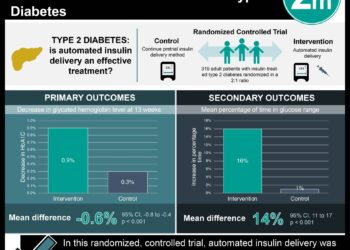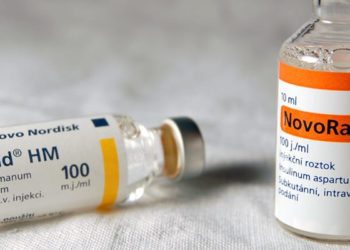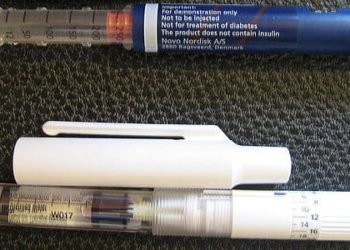Enteral insulin reduces the duration of feeding intolerance in preterm infants
1. In a multicenter, randomized trial of about 300 very preterm infants, enteral recombinant human insulin was associated with significantly decreased time to achieve full enteral feeding.
2. Infants receiving both low-dose and high-dose enteral insulin achieved full enteral feeding a median of 4 days earlier than infants receiving placebo.
Evidence Rating Level: 1 (Excellent)
Study Rundown: Feeding intolerance is common in preterm infants and often leads to prolonged parenteral nutrition dependence. Insulin is present in breast milk and has been associated with stimulation of the neonatal intestine. This large multicenter international trial aimed to assess the efficacy of enteral recombinant human (rh) insulin in promoting intestinal maturation in preterm infants. Infants admitted to neonatal intensive care units (NICUs) born at gestational ages between 26 and 32 weeks with a birth weight of at least 500 grams were included. About 300 infants were randomized to receive 28 days of either placebo or low-dose (400 μIU/mL milk) or high-dose (2,000 μIU/mL) rh insulin. The study was discontinued based on subthreshold power at an interim futility analysis. However, median time to achieve full enteral feeding (FEF) was significantly lower in infants receiving both high-dose and low-dose insulin at 10 days compared to 14 days for the control group. There were no significant differences in rates of weight gain between groups. 10% of patients who received placebo developed necrotizing enterocolitis compared to 6% and 5% of those who received low-dose and high-dose insulin, respectively. This study is limited by its sample size and by its exclusion of more complicated preterm infants. However, it provides convincing evidence of the efficacy of insulin in accelerating intestinal maturation in preterm infants, thus decreasing their exposure to parenteral nutrition and its associated serious complications.
Click to read the study in JAMA Pediatrics
Relevant Reading: Enteral bioactive factor supplementation in preterm infants: A systematic review
In-Depth [randomized controlled trial]: Infants aged 5 days or younger admitted to 46 NICUs throughout Europe, Israel, and the United States between 2016 and 2018 were included in the study. Infants with major congenital malformations, known or suspected infections, significant oxygen requirement, or necrotizing enterocolitis at the time of randomization were excluded. Infants with hyperinsulinemia, need for systemic insulin, or born to mothers with insulin- diabetes were also excluded. FEF was defined as enteral intake of at least 150 mL/kg per day for at least 3 days. Kaplan-Meier curves were generated for time to FEF in each study group. Significantly more infants in both the high-dose and low-dose insulin groups achieved FEF in the first 6, 8, and 10 days of treatment than in the placebo group. The difference in median time to achieve FEF with insulin was maintained in all subgroups of infants stratified by gestational age. 2% of infants in the low-dose insulin groups and 3% each in the high-dose and placebo groups had hypoglycemic events. No patients were found to have developed serum antibodies against insulin.
Image: PD
©2022 2 Minute Medicine, Inc. All rights reserved. No works may be reproduced without expressed written consent from 2 Minute Medicine, Inc. Inquire about licensing here. No article should be construed as medical advice and is not intended as such by the authors or by 2 Minute Medicine, Inc.







